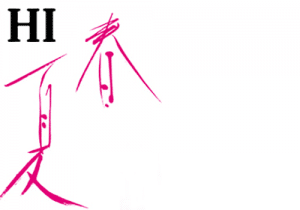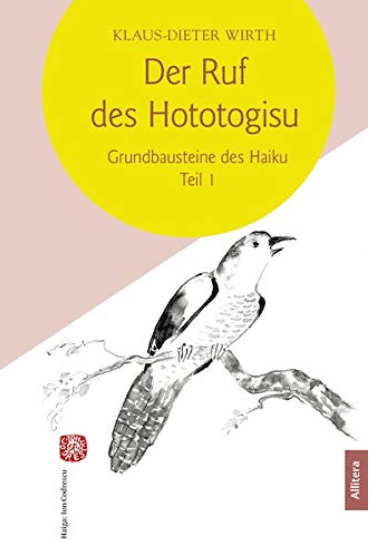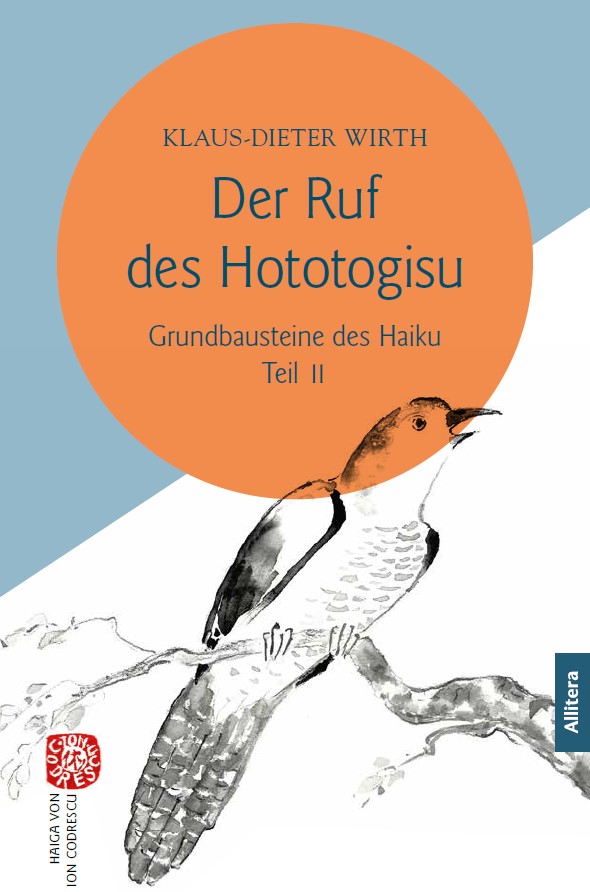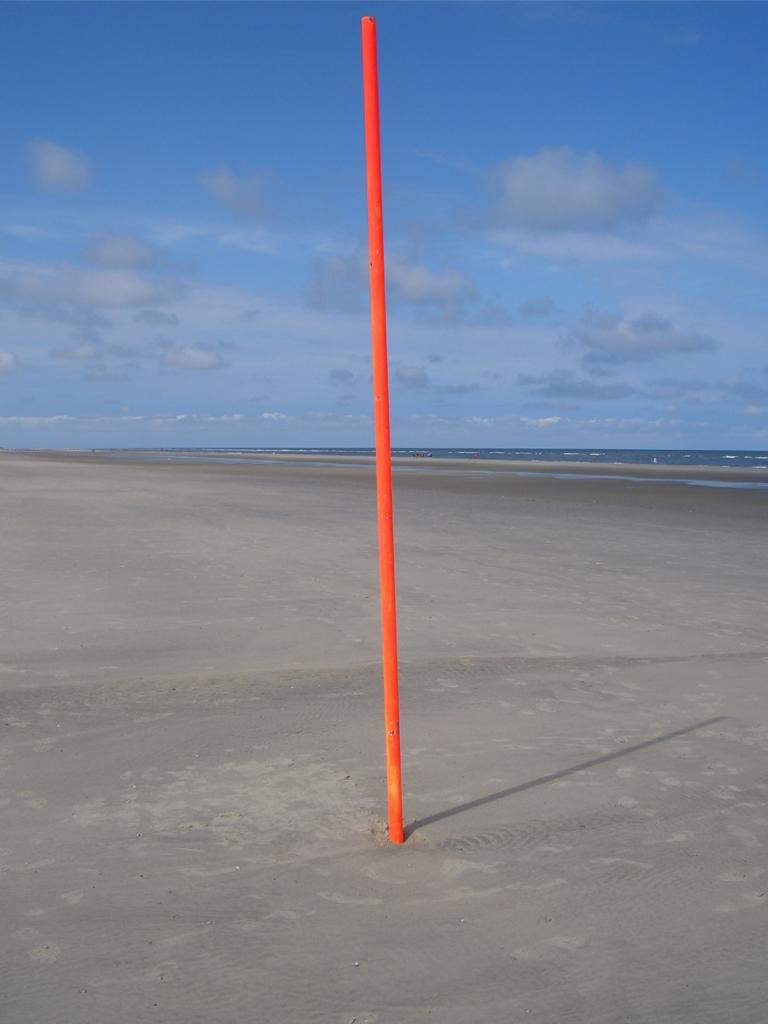Es wurden insgesamt 232 Haiku von 76 Autoren und 50 Tanka von 24 Autoren für diese Auswahl eingereicht. Einsendeschluss war der 15. Juli 2022. Diese Texte wurden vor Beginn der Auswahl von mir anonymisiert.
Jedes Mitglied der DHG hat die Möglichkeit, eine Einsendung zu benennen, die bei Nichtberücksichtigung durch die Jury auf einer eigenen Mitgliederseite veröffentlicht werden soll.
Eingereicht werden können nur bisher unveröffentlichte Texte (gilt auch für Veröffentlichungen in Blogs, Foren, inklusive die Foren auf HALLO HAIKU, sozialen Medien und Werkstätten etc.).
Bitte keine Simultan-Einsendungen!
Bitte alle Haiku/Tanka unbedingt gesammelt in einem Vorgang in das Online-Formular auf der DHG-Webseite HALLO HAIKU selbst eintragen:
Ansonsten per Mail an:
auswahlen@sommergras.de
Der nächste Einsendeschluss für die Haiku-/Tanka-Auswahl ist der 15. Oktober 2022.
Jeder Teilnehmer kann bis zu sechs Texte – drei Haiku und drei Tanka – einreichen.
Mit der Einsendung gibt der Autor/die Autorin das Einverständnis für eine mögliche Veröffentlichung in der Agenda der DHG und auf http://www.zugetextet.com/sowie für eine mögliche Vorstellung auf der Website der Haiku International Association.
Haiku-Auswahl der HTA
Die Jury bestand aus Reinhard Dellbrügge, Deborah Karl-Brandt und Tobias Tiefensee. Die Mitglieder der Auswahlgruppe reichten keine eigenen Texte ein.
Alle ausgewählten Texte – 41 Haiku von 33 Autoren – werden in alphabetischer Reihenfolge der Autorennamen veröffentlicht. Es werden maximal zwei Haiku pro Autor aufgenommen.
„Ein Haiku, das mich besonders anspricht“ – unter diesem Motto be-steht für jedes Jurymitglied die Möglichkeit, bis zu drei Texte auszusuchen (noch anonymisiert), hier vorzustellen und zu kommentieren. Diesmal wurden sechs Texte ausgewählt.
Da die Jury sich aus wechselnden Teilnehmern zusammensetzen soll, möchte ich an dieser Stelle ganz herzlich alle interessierten DHG-Mitglie-der einladen, bei kommenden Auswahl-Runden als Jurymitglied mitzu-wirken.
Peter Rudolf
Ein Haiku, das mich besonders anspricht
kein Kleingeld
der Bettler bedankt sich
für nichtsFrank Dietrich
Irgendwo in der Fußgängerzone einer Innenstadt sitzt ein Bettler auf dem Pflaster, vor sich eine Blechdose, in der sich einige kleine Geldstücke befinden. Ein Passant bleibt bei ihm stehen, zieht sein Portemonnaie aus der Tasche, schaut hinein und stellt fest, dass es keine Münzen enthält. Mit einer entschuldigenden Geste sagt er: „Ich dachte, ich hätte noch Kleingeld. Tut mir leid.“ Woraufhin der Bettler, der nichts erhalten hat, sich bedankt.
Doch der Bettler hat, genauer betrachtet, nicht nichts bekommen. Die meisten Menschen laufen an ihm vorbei, ohne dass sie ihn zu bemerken scheinen. Der vor ihm stehende Passant irrte sich zwar hinsichtlich des Inhalts seiner Geldbörse, aber er ignorierte ihn nicht. Für die bloße Absicht zu geben und die damit verbundene minimale Beachtung und kurze Zuwendung bedankt sich der Bettler.
Nach dieser wohlgefälligen Szene sei noch eine aufdringlich-aggressive angeführt:
Ein Bettler spricht einen Passanten an: „Haste ma´n Euro?“ Der Angesprochene sagt: „Nein, hab ich nicht.“ Im Weitergehen hört er noch den ihm nachgerufenen Satz: „Vielen Dank für nichts!“
Ausgesucht und kommentiert von Reinhard Dellbrügge
Junitag, noch früh.
Die Teeschale in der Hand,
Sitze ich und bin.Christian Hövel
Im Hier und Jetzt sein, nicht nur körperlich, sondern auch mental. Das bedeutet achtsam zu sein. Genau das ist es, was der Autor hier in diesem Text beschreibt. Viele Menschen hängen mit ihren Gedanken in der Vergangenheit fest oder sie beschäftigen sich mit zukünftigen Sorgen. Die im Haiku beschriebene Person hingegen ist, früh an diesem Junitag, mit der Teeschale in der Hand, im Hier und Jetzt. Das macht besonders die letzte Zeile deutlich: „Sitze ich und bin“. Danke für diesen Text, der mich daran erinnert, mich noch öfter in Achtsamkeit zu üben.
Ausgewählt und kommentiert von Tobias Tiefensee
Krankenhaus,
ein Fensterschlitz zeigt
Schäfchenwolken.Saskia Ishikawa-Franke
Ein Haiku, bei dem der Leser verweilen muss, um es einigermaßen auszuschöpfen. Der Ort des Bildes – auf welches es allein ankommt, denn es geschieht hier nichts – ist ein Krankenhaus. Irgendwo in diesem Gebäude gibt es einen Fensterschlitz, der das Tageslicht in einen anonymen Raum hereinlässt. Ein Fensterschlitz stellt im Unterschied zu einem normalen Fenster eine sehr eingeschränkte Verbindung zur Außenwelt dar. Seine Enge, die einen sogar an eine Gefängniszelle denken lässt, wirkt beklemmend.
Im scharfen Kontrast dazu steht, was durch den Schlitz zu sehen ist: Schäfchenwolken. Die flockigen weißen Gebilde ziehen frei am Himmel dahin. Zu diesem Anblick gesellt sich mühelos die Vorstellung der Weite einer anmutigen bukolischen Landschaft.
Formelhaft verkürzt ließe sich sagen: Die Wölkchen erscheinen vor dem Hintergrund der klaustrophoben Atmosphäre des Zimmers als Sinnbild der Freiheit, welche zu erlangen aber mindestens schwierig, wenn nicht gar unmöglich ist.
Ausgesucht und kommentiert von Reinhard Dellbrügge
Haushaltsauflösung
Das Steinchen mit dem Schriftzug MUT
behaltenRamona Linke
Etwas ist zu Ende gegangen. Unwiderruflich hat es sich aufgelöst. Die Kisten sind gepackt, die Entscheidungen getroffen: darüber, was an die Nach-barschaftshilfe gespendet wird, wer welche Möbel bekommt und was ent-sorgt werden muss. Was mitnehmen? Die Wahl des lyrischen Ichs fällt auf einen bemalten Stein mit der Aufschrift MUT. Augenscheinlich gäbe es Kostbareres, was man mitnehmen könnte in ein neues Leben. Das teure Service zum Beispiel. Stattdessen ein bemalter Stein.
Doch, damit ein Leben gelingen kann, braucht es Mut! Um seinen eigenen Weg zu gehen, um notwendige, vielleicht schmerzhafte Entscheidungen zu treffen, um mit dem Altern des Körpers oder chronisch gewor-denen Krankheiten leben zu lernen.
Wie gut ist es, etwas zu haben, das uns daran erinnert, nicht zu verzagen, wenn einem ganz flau ist im Herzen vor Angst, sondern mutig einen kleinen Schritt zu wagen. Und dann noch einen. Das Leben wartet. Dem Mutigen gehört die Welt!
Dieses wundervolle Senryu setzt auf eine klare Sprache und klare Bilder. Seine leisen Töne eröffnen genügend Raum für die eigene Interpretation des Lesers. Besonders gelungen ist der Gegensatz zwischen Vers eins und drei. Auflösung und Bewahren spiegeln den inneren Konflikt, von dem dieses Gedicht seine Spannung bezieht. Wollte man dieses Gedicht drastisch verkürzen, blieben die Worte „Auflösung“, „Mut“ und „Behalten“ übrig. Worte, die über eine große emotionale Kraft verfügen und die von der universellen Erfahrung erzählen, was Verlust ist und wie man ihn übersteht.
Ausgesucht und kommentiert von Deborah Karl-Brandt
Kriegsbeginn –
Sie sagen er sei nun
erwachsenEva Limbach
Wann ist man jemals bereit für den Krieg? Eine Kindheit sollte nicht so enden. Hier wird jemand „zum Mann“ gemacht, der es eigentlich noch gar nicht ist und es vielleicht auch gar nicht sein will. Den niemand fragt. Der sich nicht wehren kann. Dem ein großes Unrecht geschieht. Mit welchem Recht darf man einem anderen so etwas antun?
Und wer will schon ein Mann sein, wenn er dafür töten muss oder das Risiko eingeht, selbst getötet, gefangen genommen, verwundet oder gefol-tert zu werden? Was wird er tun müssen, um zu überleben? Und was wird es ihn am Ende kosten? Wird das Opfer zum Täter? Die Täter zu Opfern?
Ich denke an meinen Großvater: Die sichtbaren Spuren des Krieges und die unsichtbaren, die sein Leben prägten. Hatten wir nicht gehofft, etwas gelernt zu haben, klüger geworden zu sein nach dem letzten Mal?
Das Senryu befeuert die Vorstellungskraft, berührt emotional tief und veranlasst den Leser, sich der unschönen Wahrheit zu stellen: Wir sind nicht Herr unseres Schicksals. Sicherheiten können angetastet werden, Schutzräume können verloren gehen. Umso wichtiger sind Empathie und Mitgefühl für den Anderen.
Ein gelungener Text sollte die Wahrheit ansprechen, vor allem auch, wenn sie unbequem ist. Das tut dieses Gedicht auf meisterhafte Weise. Nicht nur die Lügen werden entlarvt, sondern auch die menschliche Tragödie, die ein Krieg immer bedeutet.
Ausgesucht und kommentiert von Deborah Karl-Brandt
für immer gegangen
er trägt ihr Foto
nach CompostelaJutta Petzold
Da ich selbst schon auf dem Jakobsweg nach Santiago de Compostela gewandert bin, spricht mich dieses Haiku besonders an. Ich weiß, wie unterschiedlich die Beweggründe für eine solche Pilgerreise sein können. Vielleicht wollte hier ein Paar die Reise zusammen unternehmen. Vielleicht hatte es auch schon konkrete Pläne gemacht, und dann kam ihnen das Leben dazwischen. Nachdem sie „für immer gegangen“ ist, pilgert er allein mit ihr im Herzen und ihrem Foto im Rucksack nach Compostela. Buen Camino!
Ausgesucht und kommentiert von Tobias Tiefensee
Die Auswahl
während der suche
im bestimmungsbuch fliegt er
fort – der käferSylvia Bacher
schaler Sekt –
der Augenblick, um dich zu küssen …
VerpasstTony Böhle
Echo
mein Dialog mit
dem BergStefanie Bucifal
Therapie
den Medizinball rollen
wie Sisyphos den SteinStefanie Bucifal
Palliativstation
Mama bittet mich, dem Schmetterling
das Fenster zu öffnenMaya Daneva
kein Kleingeld
der Bettler bedankt sich
für nichtsFrank Dietrich
Seewind
eine Düne
definiert sich neuFrank Dietrich
Kornblumenfeld
das leuchtende Blau deiner AugenHildegard Dohrendorf
Wikingerdorf
unsere Schatten entlang
der ZeitPetra Fischer
Am Eisack-Ufer –
der eine Stein
atmet.Volker Friebel
Zeitumstellung
den Spatzen im Garten
ist es egalDieter Gebell
Akupressur-Kurs
verzweifelt auf der Suche nach
dem Punkt für NeustartIvan Georgiev
As Time Goes By
im Sperrmüll entdecke ich
die VergangenheitGabriele Hartmann
nächtlicher Donner – wie vertraut wir uns sind
Gabriele Hartmann
brütende Hitze
nichts regt sich außer dem
RasenroboterSylvia Hartmann
Kissenbezug
das Muster
meiner KindheitBirgit Heid
Strandkorbgeflüster
die Ereignisse, die ich
verschwiegBirgit Heid
fernes Gewitter –
mein Gesicht im Regenfass
ganz, ganz tief untenKerstin Hirsch
Engelskulptur
auf ihren Flügelspitzen
rasten LibellenAngelika Holweger
Junitag, noch früh.
Die Teeschale in der Hand,
Sitze ich und bin.Christian Hövel
am Wandertag
bis abends unermüdlich
der SchrittzählerElisabeth Kleineheismann
gepflastert mit Marmor
die Wege zur Akropolis
und die Schlafplätze der BettlerPetra Klingl
Gipfelkreuz –
in die Stille hinein
nichtsKlaus Kornexl
Haushaltsauflösung –
das Steinchen mit dem Schriftzug MUT
behaltenRamona Linke
Landregen
sie schließt die Augen
und lauschtRamona Linke
Gewitterwolken
ich stimme ein in das
Schweigen der VögelIngrid Meinerts
geputzte Fliesen
eine kleine Spinne
ohne HaltRuth Karoline Mieger
Jahresgedächtnis
sie verschenkt
den RollatorRuth Karoline Mieger
Musikfest
in der Gasse der Tanz
der MauerseglerEleonore Nickolay
zurück an der Eiche
ihr eingeritztes Herz
hat Risse bekommenEleonore Nickolay
er liebt mich
er liebt mich nicht
sie fragt das GänseblümchenJutta Petzold
für immer gegangen
er trägt ihr Foto
nach CompostelaJutta Petzold
Fernsehnachrichten
unser Wohnzimmer
längst krisenerprobtWolfgang Rödig
Am Rohbau,
samstags das fleißige Hämmern
des SpechtesMichael Rasmus Schernikau
frühlingsanfang
eine mauerbiene
schaut aus der röhreElisabeth Sofia Schlief
die Maus im Bad
bringt mich ganz
aus dem GleichgewichtMarie-Luise Schulze Frenking
Bilder ansehen
Vom letzten Mai
Und wieder der DuftMonika Seidel
auf der Parkbank –
berührt von Schatten die
vorübergehenAngelica Seithe
Donnergrollen
ein Messer löst die Spannung
der WassermeloneElisabeth Weber-Strobel
neben dem Feldweg
skeptische Blicke
einer RehfamilieStefanie Wichert
verschmolzen
mit dem stillen Teich
ein ReiherFriedrich Winzer
Tanka-Auswahl der HTA
Silvia Kempen und Martin Thomas wählten 4 Tanka von 4 Autoren aus. Die ausgewählten Texte werden in alphabetischer Reihenfolge der Autorennamen veröffentlicht. Es werden maximal zwei Tanka pro Autor aufgenommen.
„Ein Tanka, das mich besonders anspricht“ – unter diesem Motto besteht für die beiden Jurymitglieder die Möglichkeit, bis zu drei Texte auszusuchen (noch anonymisiert), hier vorzustellen und zu kommentieren. Diesmal wurde ein Text ausgewählt.
Ein Tanka, das mich besonders anspricht
nach all den Jahren
dieses tiefe Vertrauen –
und doch taste ich
in den Serpentinen
nach dem Griff der BeifahrertürGabriele Hartmann
Hier sind zwei Personen im Auto unterwegs. Es wird nicht deutlich, was das für Personen sind. Ich könnte mir ein Paar, das in einer Beziehung lebt, vorstellen, es könnten aber auch Freunde sein. Sie kennen sich schon lange und vertrauen einander, oder zumindest vertraut die Person auf dem Beifahrersitz der Person auf dem Fahrersitz.
Wie Schiller sagte: „Das Vertrauen wird kommen, hat jeder erst seine Sicherheit.“
Doch was ist, wenn diese Sicherheit nicht mehr gegeben ist? „in den Serpentinen“ – allein bei diesem Satz wird auch mir mulmig, und ich kann das Tasten nach dem Griff der Beifahrertür sehr gut verstehen. Das gibt wieder Sicherheit, obwohl es ja nur eine trügerische Sicherheit ist. Denn im Falle eines Unfalls oder Sturzes hilft dieser Griff nicht wirklich, er schützt nicht vor Schaden.
Im Grunde ist dieses Tasten nach dem Griff der Beifahrertür eine rein emotionale Angelegenheit und sehr menschlich. Die Person auf dem Beifahrersitz muss kein schlechtes Gewissen haben. Angst ist kein Vertrauensbruch.
Ausgesucht und kommentiert von Silvia Kempen
Die Auswahl
wenn du sagst
das hier sei nicht gerade
der Nabel der Welt
kommt wieder die Schwanzmeise
und klopft ans ZimmerfensterChristof Blumentrath
ich wünschte
ich könnte sie irgendwie
abmontieren
die Kuckucksuhr
die auf meinen Schultern sitztFrank Dietrich
nach all den Jahren
dieses tiefe Vertrauen –
und doch taste ich
in den Serpentinen
nach dem Griff der BeifahrertürGabriele Hartmann
nach dem besuch
in jedem winkel stille
unter dem bett
die playmobil-giraffe
streckt alle viere von sichLudmilla Pettke
Sonderbeitrag von René Possél
René Possél hat aus allen anonymisierten Einsendungen ein Haiku ausgesucht, das ihn besonders anspricht.
Jahresgedächtnis
sie verschenkt
den RollatorRuth Karoline Mieger
Ein Haiku, das von „Zeit“ in einem mehrfachen Sinne spricht. Die erste Zeit: Wenn ein Jahr seit dem Tod eines/einer Verstorbenen vergangen ist, gibt es eine Messe zum Toten-Gedenken. Der Ausdruck „Jahresgedächtnis“ verweist auf die katholische Kirche. Der Einzelne erinnert sich innerhalb seiner Kirchengemeinde eines Verstorbenen und sucht den Trost des Glaubens und der Gemeinschaft. Man könnte es „eine immer mehr versinkende Zeit“ nennen.
Die zweite Zeit: Da hat jemand (Witwe/Tochter) ein ganzes Jahr gebraucht, um mit dem Tod und der Trauer fertig (?) zu werden. Ein gewisser Abschluss dieses Prozesses (oder auch nur das Ende einer Zeit der Pietät) scheint der Entschluss, ein letztes Utensil seines/ihres Alters und der Gebrechlichkeit wegzuschenken. – Warum hat sie den Rollator so lange behalten? Konnte sie sich nicht trennen von dem, was an ihn/sie erinnerte?
Vielleicht ist das Wegschenken eine Geste der Großzügigkeit, vielleicht nur ein banaler praktischer Akt. Der Rollator ist eine Erinnerung an den Verstorbenen/die Verstorbene sowie die Mühen der letzten Lebenszeit. – Es geht um die letzten Dinge – in mehrfachem Sinne. Das Haiku kann nachdenklich machen.
All diese wunderlichen
kleinen Dinge, die sich
einfinden
in einem Menschenleben.
Jedes hat sein Woher,
jeder von uns sein Wohin.
Lars Gustafsson







